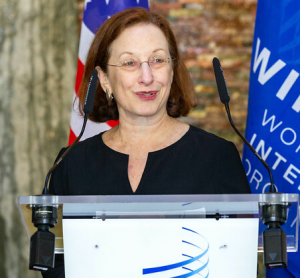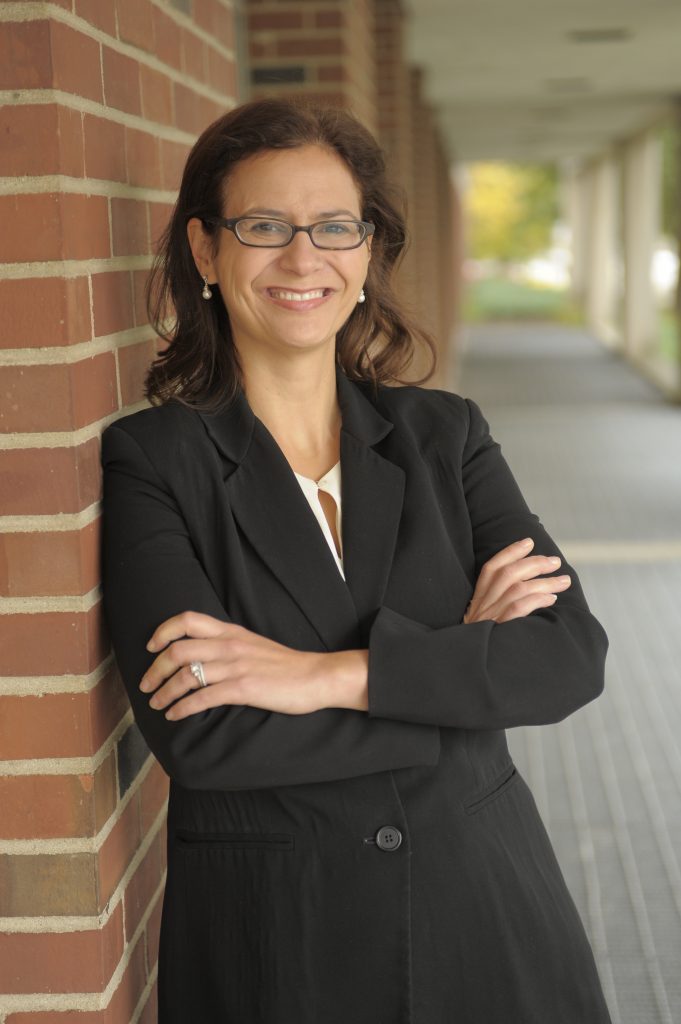On September 21, the Librarian of Congress Dr. Carla Hayden announced her appointment of Shira Perlmutter as the next U.S. Register of Copyrights. While the Register of Copyrights (the Register) role may not be the most publicly visible position in the Library of Congress, the Register plays a significant role in influencing and upholding copyright laws.
To help you gain a better understanding of what the Register of Copyrights does and how they may impact your life as a researcher and/or consumer of public information, we created a list of important information you should know about the U.S. Copyright Office and the Register of Copyrights.
What is the Register of Copyrights?
The Register of Copyrights is the director of the U.S. Copyright Office, the principal federal agency that administers the U.S. Copyright Act. The Register is responsible for administering the provisions of copyright and related laws set out in Title 17 of the United States Code. The law directs the Register to advise Congress on national and international issues related to copyright laws, provide information and assistance on copyright matters to other federal agencies and the judiciary, conduct studies and programs regarding copyright, and participate in meetings of international intergovernmental organizations and meetings with foreign government officials.
Additionally, the Register is responsible for allocating financial and other resources to ensure that the Copyright Office’s programmatic mission and objectives are met. The Register oversees Copyright Office employee functions such as registration, recordation, statutory licensing, law and policy, public information and education, operations, and modernization program activities.
Who is Shira Perlmutter?
Shira Perlmutter is one of the nation’s most preeminent copyright experts. Prior to her appointment as the 14th U.S. Register of Copyrights, Shira Perlmutter served as the United States Patent and Trademark Office’s (USPTO) Chief Policy Officer and Director for International Affairs.
All together, Perlmutter has more than 20 years of experience working on copyright and other intellectual property issues, in a variety of public and private sector positions. During her tenure at the USPTO, she led the work of the Office of Policy and International Affairs in contributing to domestic and international IP policy development, represented the United States in negotiations at the World Intellectual Property Organization, oversaw the USPTO’s economic research, international education and IP attaché programs, and managed the USPTO’s work with the United States Trade Representative on matters involving IP and trade.
Coming into the position, Perlmutter has also been vocal about her advocacy of fair copyright laws. Prior to her appointment Perlmutter has given public lectures on copyright, stating that Americans desire copyright laws that make sense and that reflect the technologies currently in use. Furthermore, she has expressed desires for laws that keep pace with modern technology.
Implications of Perlmutter’s Appointment
With her new appointment as the Register of Copyrights, she is now in a position to potentially make some of those updates. Assuredly, one of the policy areas in copyright law that demands a new approach is technology.
For example, new technologies like facial recognition and artificial intelligence have been plagued by racial and gender bias, and Internet platforms like Facebook, YouTube, Instagram, and Twitter have amplified hate speech, disinformation, and conspiracy theories. Additionally, as digital streaming continues to establish its dominance in the music industry, it raises the question of how the federal government should modernize copyright laws for music and audio recordings.
Unlike her predecessors, Perlmutter will have to learn to provide guidance on copyright laws and privacy issues while dealing with big tech corporations with trillion dollar market caps and major lobbying influence. Depending on how she wields her influence, Perlmutter’s decisions as the new Register could have long-lasting implications in the fields of copyright, privacy, and intellectual property.
To learn more about the U.S. Copyright Office and Register Perlmutter, visit the Copyright Office’s website.
Resources Consulted:
Keyes, J. (2019, November 14). The Katy Perry Verdict Proves Our Music Copyright Laws Need a Tune Up. Retrieved September 28, 2020, from https://www.ipwatchdog.com/2019/08/29/katy-perry-verdict-proves-music-copyright-laws-need-tune/id=112644/.
U.S. Copyright Office. Leadership and Offices. Retrieved September 28, 2020, from https://www.copyright.gov/about/leadership/.
United States Patent and Trademark Office. (2020, September 21). Shira Perlmutter, USPTO Chief Policy Officer and Director for International Affairs, appointed Register of Copyrights. Retrieved September 28, 2020, from https://www.uspto.gov/about-us/news-updates/shira-perlmutter-uspto-chief-policy-officer-and-director-international.



